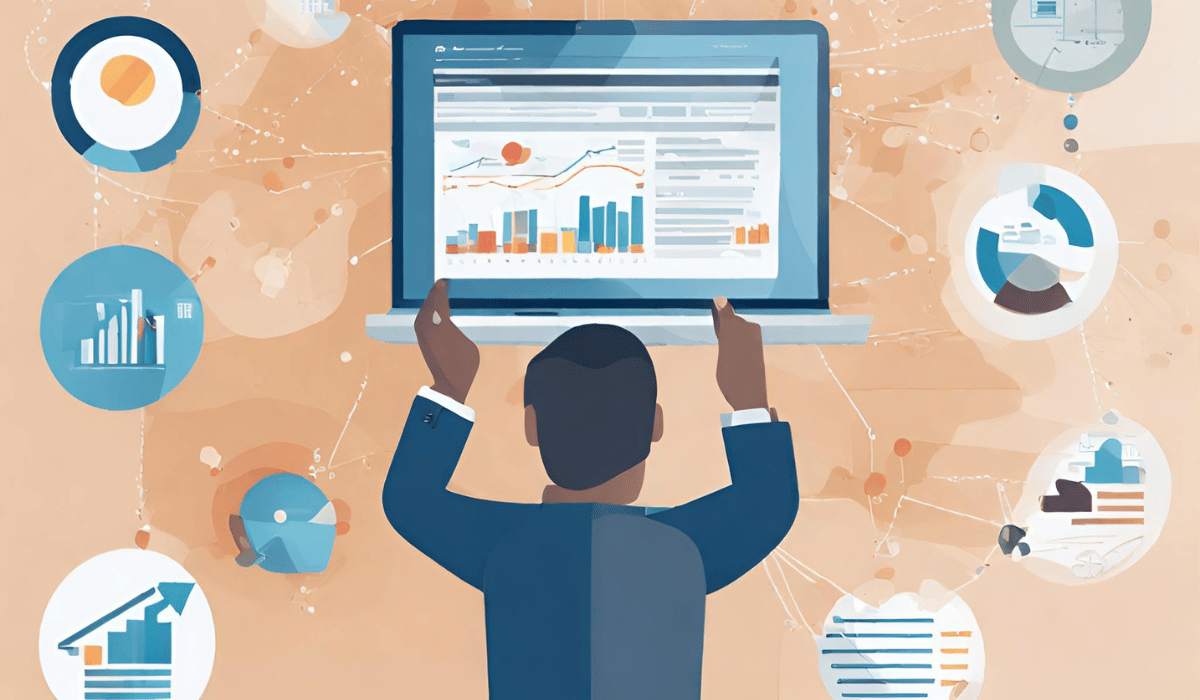Overview of the Growing Influence of Data Brokers

Data brokers are companies that collect and sell personal information about individuals to other businesses and organizations. Their influence has been growing rapidly in recent years as the demand for data-driven insights and targeted marketing has increased. Data brokers collect information from a variety of sources, including public records, social media, and online activity. They then analyze this data to create detailed profiles of individuals that can be used for marketing, advertising, and other purposes.
Understanding Data Brokers

Data brokers are businesses that specialize in collecting and selling personal information about individuals to other businesses and organizations. They gather data from a variety of sources, including public records, social media, and online activity, and use this information to create detailed profiles of individuals. These profiles can be used for a variety of purposes, including marketing, advertising, and research. While data brokers can provide valuable insights to businesses and organizations, there are also concerns about the privacy implications of their activities.
Definition and Role of Data Brokers
Data brokers are companies that collect and sell information about individuals and businesses. Their role is to gather data from a variety of sources, including public records, social media, and online activity, and use this information to create detailed profiles of individuals. These profiles can be used by businesses and organizations for a variety of purposes, including marketing, advertising, and research. Data brokers can provide valuable insights to businesses and organizations, but there are also concerns about the privacy implications of their activities.
Types of Data Brokers

There are several types of data brokers, each specializing in different types of data and serving different industries. Here are some examples:
1. Marketing data brokers: These data brokers collect information about consumers’ shopping habits, interests, and demographics to create targeted marketing campaigns.
2. Risk mitigation data brokers: These data brokers provide background checks and other risk assessment services to employers, landlords, and other organizations.
3. Financial data brokers: These data brokers collect and sell financial information, such as credit scores and payment.
The Business of Data Brokers
Data brokers are companies that collect, analyze, and sell consumer data to other businesses. They operate in a variety of industries, including marketing, finance, and risk mitigation. These companies use sophisticated algorithms and data mining techniques to gather information about consumers’ online and offline activities, including their shopping habits, interests, and demographics. They then package and sell this data to other businesses, who use it to create targeted marketing campaigns, perform background checks, and make financial decisions.
Privacy Implications of Data Brokers
The use of data brokers raises significant privacy concerns. Consumers may not be aware that their personal information is being collected and sold, and may not have given their consent for this to happen. Additionally, the data collected by brokers can be inaccurate or outdated, leading to incorrect assumptions being made about individuals. There is also a risk that this information could be used for nefarious purposes, such as identity theft or stalking. As such, consumers need to be aware of the existence of data brokers and
The Lack of Transparency
Data brokers operate in a largely unregulated industry, which means that there is often a lack of transparency about how they collect, store, and use personal information. Consumers may not know which data brokers are collecting their information, what information is being collected, or how it is being used. This lack of transparency can make it difficult for individuals to exercise their right to privacy and control over their personal information.
Profiling and Segmentation
Profiling and segmentation are two practices commonly used by data brokers. Profiling involves using data to create a detailed profile of an individual, including their interests, behaviours, and preferences. Segmentation involves dividing individuals into groups based on shared characteristics or behaviours. Both practices can be used to target individuals with specific marketing messages or to make decisions about them, such as whether to approve a loan or job application. However, profiling and segmentation can also have negative consequences.
Data Security Risks
Data security risks are a major concern when it comes to profiling and segmentation. The collection and storage of personal information can make individuals vulnerable to identity theft, fraud, and other forms of cybercrime. Additionally, the use of third-party data brokers and other data sources can increase the risk of data breaches and unauthorized access to sensitive information.
Linking Data and Identifiability
Another potential negative consequence of profiling and segmentation is the linking of data and identifiability. As more data is collected and analyzed, it becomes easier to link different pieces of information together and create a more complete picture of an individual’s life. This can be concerning for individuals who value their privacy and do not want their personal information to be easily accessible or connected in this way. It can also lead to discrimination and unfair treatment based on factors such as race, gender, or socioeconomic status.
Data Monetization and Consent
Data monetization refers to the process of generating revenue from data by selling it to third-party companies for marketing and advertising purposes. This can be a lucrative business for companies that collect large amounts of data, but it raises concerns about user consent and privacy. Users may not be aware that their data is being sold or may not fully understand the implications of giving consent. Additionally, some companies may use manipulative tactics to obtain user consent, such as burying consent language in lengthy terms and conditions agreements.
Regulatory Landscape
The regulatory landscape around data privacy and consent is evolving rapidly. In the European Union, the General Data Protection Regulation (GDPR) went into effect in May 2018, which strengthened data protection and privacy rights for EU citizens. The GDPR requires companies to obtain clear and explicit consent from users before collecting and processing their data. It also gives users the right to access, correct, and delete their data.
Current Privacy Laws and Regulations
The regulatory landscape around data privacy and consent is constantly evolving, with new laws and regulations being introduced in different parts of the world. In addition to the GDPR in the EU, there are several other privacy laws and regulations that companies need to be aware of. In the United States, the California Consumer Privacy Act (CCPA) went into effect on January 1, 2020.
Regulatory Gaps and Challenges
Regulatory gaps and challenges exist in the implementation and enforcement of privacy laws and regulations. One challenge is the lack of harmonization between different laws and regulations in different regions, which can create confusion for companies operating in multiple jurisdictions. Another challenge is the difficulty in enforcing privacy laws and regulations, particularly against companies that operate in multiple jurisdictions and may not have a physical presence in the region where the law applies.
Calls for Stricter Regulations
There has been a growing demand for stricter privacy regulations in recent years, particularly in light of high-profile data breaches and concerns over the use of personal data by companies. Some advocates argue that current laws and regulations are not sufficient to protect individuals’ privacy rights and that stronger measures are needed to ensure that companies are held accountable for their handling of personal data. One proposed solution is the implementation of a comprehensive federal privacy law in the United States, which would provide a uniform set of regulations for all companies.
Impact on Individuals and Society
The impact of data privacy concerns on individuals and society is significant. With the increasing amount of personal data being collected by companies, individuals are at risk of having their sensitive information misused or even stolen. This can lead to identity theft, financial fraud, and other forms of cybercrime. In addition, the lack of trust in companies’ ability to protect personal data can lead to a decrease in consumer confidence and a negative impact on the economy.
Personal Privacy Invasion
The invasion of personal privacy is a serious issue that affects individuals and society as a whole. With the widespread use of technology and social media, personal information is easily accessible and vulnerable to misuse. This can lead to a range of negative consequences, including stalking, harassment, discrimination, and even physical harm. Individuals need to take steps to protect their privacy, such as being cautious about sharing personal information online and using privacy settings on social media platforms.
Discrimination and Bias
Discrimination and bias are pervasive issues in society that can have serious consequences for individuals and communities. Discrimination can take many forms, including racism, sexism, homophobia, and ableism, among others. Bias refers to the tendency to favour one group over another, often based on stereotypes or preconceived notions. These issues can have a significant impact on individuals’ lives, including their access to education, employment, housing, and healthcare.
Manipulation and Influence
Manipulation and influence are also prevalent issues in society, particularly in the realm of advertising and media. Advertisers often use tactics such as emotional appeals, celebrity endorsements, and misleading information to persuade consumers to buy their products. Similarly, media outlets can use their influence to shape public opinion and perception, often through selective reporting or biased coverage. It is important for individuals to be aware of these tactics and to critically evaluate the information they are presented with.
Conclusion
In conclusion, the role of media and advertising in society is significant and cannot be ignored. It is crucial for individuals to be aware of the tactics used by these industries and to approach the information presented to them with a critical eye. By doing so, we can make informed decisions and avoid being swayed by misleading or biased information.
